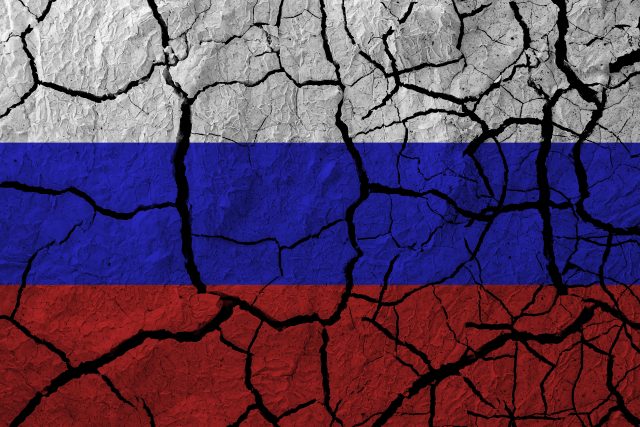Russia expected to see ‘severe recession’ within a year
By Sarah NeishGlobal sanctions on energy and consumer goods following Russia’s invasion of Ukraine mean the country is now on route to entering a deep recession, predicts UC Berkley economist.

Despite Putin’s claims that Russia’s economy is doing fine, it may be careering towards a “severe recession” within the year, according to an expert economist at University of California Berkley.
It means that the cumulative effect of Western nations withdrawing trade from Russia may be finally starting to pay off.
Yuriy Gorodnichenko attributes the anticipated economic slide to two things – the demise of ‘petrodollars’ (money obtained through Russia’s oil and gas trade), and a lack of US dollars flowing into the country more generally via the trade of consumer goods, including alcoholic beverages.
Last year, Moscow’s oil and gas sales plummeted by 24% to a three-year low due to sanctions imposed by the West in response to Russia’s war with Ukraine. Gorodnichenko has revealed that when the Soviet Union lost access to these ‘petrodollars’, its economy collapsed within five years. This time, he says, the demise is likely to be much faster as modern-day Russia is less self-sufficient than the former Soviet Union was.
Russia is also poised to see a deficit of ₽1.59 trillion (US$18 billion) this year as a result of its hefty war budget.
Both these factors, combined with the continued sanctions on the trade of everyday consumer goods, could push Russia into a deep recession in 2025.
Partner Content
According to Gorodnichenko, Russia’s attempt to “de-dollarise” its trade and establish alternative payment systems with its allies are only pushing the nation closer to economic hardship. Especially given the fact that “Russia still imports just about everything” from cars and furniture to food, drink and other consumer goods,” he said.
Despite this perfect storm, the Kremlin continues to play hardball, and is due to double its import taxes on spirits, including Scotch whisky from the UK, as early as August. It is also considering slapping a 200% duty on wine imports from NATO states.
Drinks trade support
The drinks trade has largely rallied behind Ukraine, with many major companies ceasing to trade with Russia including Pernod Ricard, Heineken, Carlsberg, and now Bacardi (though the journey to withdraw from Russia has been a twisted path for the latter).
Not all drinks firms have been completely transparent about their exit from the Russia market, however, with some allegedly continuing to trade with Russia, using Latvia as a middle man in order to conceal their ties.
But as supply in Russia has dwindled, demand has shot up. As db reported, the increased demand for alcoholic drinks is partly due to “psychological tension” caused by the pandemic and the Russia-Ukraine war. In 2023, the number of litres of alcohol consumed per person per year in Russia reached a nine-year high to eight litres, and may even be higher than that volume.
“Currently the per capita sales of absolute alcohol are growing in Russia. This clearly indicates an increase in consumption. This is how the population responds to difficulties,” said Evgeny Andreev, a leading researcher at the Centre for Demographic Research of the Russian Economic School (NES).
Ukraine has also seen increased demand for spirits since the start of the war, with a notable growth spike in gin.
Related news
Should Rioja increase its focus on white wine?
The 'family spirit' behind Champagne Gardet's 130th anniversary




